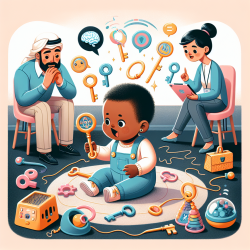The field of audiological rehabilitation is continuously evolving, driven by ongoing research and the development of new therapeutic approaches. A recent comprehensive review, "Research in Audiological Rehabilitation: Current Trends and Future Directions," provides valuable insights for practitioners looking to enhance their skills and contribute to the advancement of the field.
One of the key takeaways from the research is the importance of integrating current intervention approaches with innovative research findings. This integration can significantly improve the quality of audiological rehabilitation services, making them more relevant, valid, and cost-effective. For practitioners, this means staying informed about the latest research trends and being open to adapting their therapeutic approaches accordingly.
The monograph highlights several clinical issues that require further investigation, suggesting that a broader scope of research could lead to substantial improvements in patient care. These include the development of more effective hearing aid fitting procedures, performance measurements of assistive listening devices, and the refinement of auditory and visual speech perception training methods. For practitioners, engaging in or supporting research in these areas could be instrumental in driving the field forward.
Another significant aspect of the research is the emphasis on the consumer's perspective. Understanding the needs and experiences of individuals with hearing loss is crucial for developing services that are truly beneficial. Practitioners are encouraged to incorporate feedback from their patients into both their clinical practice and research endeavors. This patient-centered approach can lead to more personalized and effective rehabilitation strategies.
The monograph also addresses the need for interdisciplinary collaboration in audiological rehabilitation. The complex nature of hearing loss and its impact on individuals' lives require a comprehensive approach that combines expertise from various fields. Practitioners can enhance their therapeutic outcomes by working closely with other professionals, such as speech-language pathologists, otolaryngologists, and psychologists, to provide holistic care to their patients.
In conclusion, "Research in Audiological Rehabilitation: Current Trends and Future Directions" offers a wealth of information that can help practitioners improve their skills and contribute to the evolution of the field. By implementing the outcomes of current research, embracing interdisciplinary collaboration, and engaging in further investigation, practitioners can play a pivotal role in enhancing the quality of care for individuals with hearing loss.
To read the original research paper, please follow this link: Research in Audiological Rehabilitation: Current Trends and Future Directions.










